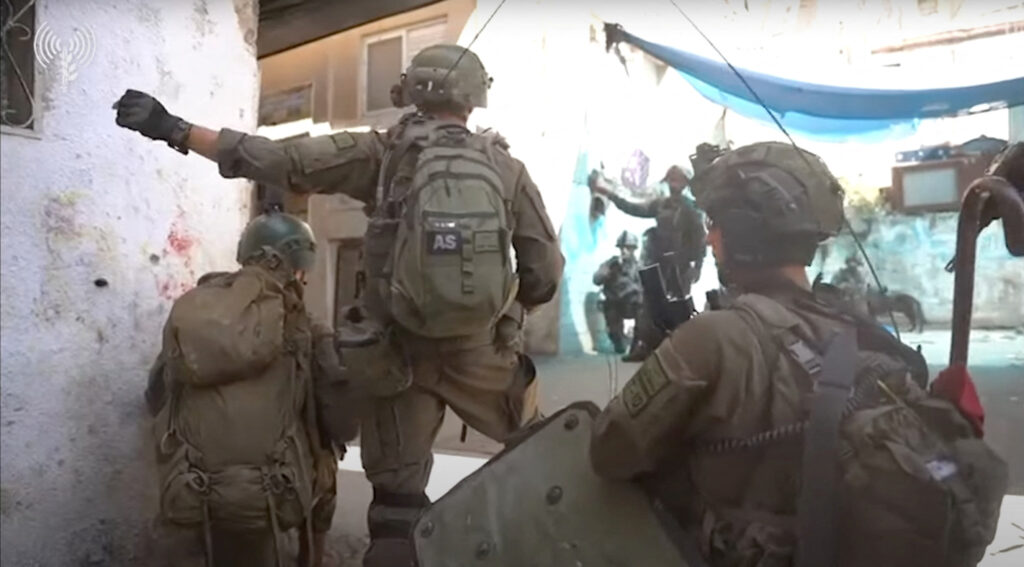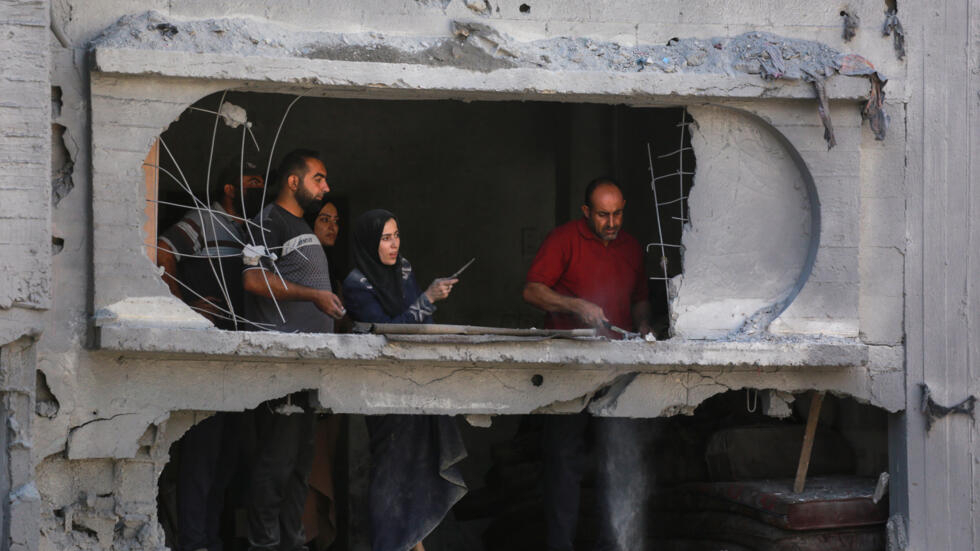Israeli forces killed a local commander of the Iranian-backed Islamic Jihad movement and four other militants Thursday in a fierce gunbattle at a mosque in the West Bank city of Tulkarm, marking one of the largest military operations in the occupied territory in recent months.

The Israeli military identified the slain commander as Muhhamad Jabber, known as Abu Shujaa, head of a militant network in the adjacent Nur Shams refugee camp. The killings occurred during what the military described as a “significant exchange of fire” around the Abu Ubaida mosque in Tulkarm.
Islamic Jihad’s Tulkarm division confirmed Jabber’s death, bringing the total Palestinian casualties to 17 over the past two days of intense Israeli operations.
The large-scale military action began early Wednesday, with hundreds of Israeli troops supported by helicopters, drones, and armored personnel carriers sweeping into the flashpoint cities of Tulkarm, Jenin, and areas in the Jordan Valley.
In Jenin, Israeli bulldozers pushed through empty, debris-strewn streets as drones buzzed overhead. Troops searched ambulances and restricted access to the city’s main hospital, reportedly to prevent militants from seeking refuge there.
The operation has drawn international concern. United Nations Secretary-General Antonio Guterres called Israel’s actions “deeply concerning” and urged an immediate halt to the violence.

Israel’s UN ambassador, Danny Danon, defended the operation, stating its goal was “preventing Iranian terror-by-proxy that would harm Israeli civilians.”
The West Bank has seen escalating clashes since Israel’s war with Hamas began in Gaza nearly 11 months ago. Palestinian tallies indicate over 660 people, both combatants and civilians, have been killed in the territory. Some deaths have been attributed to attacks by Jewish settlers.
Israeli Foreign Minister Israel Katz characterized the situation as “a war in every sense” that Israel “must win.” He accused Iran of attempting to destabilize Jordan and establish an eastern front against Israel, similar to its actions in Gaza and Lebanon.
Katz suggested that addressing this threat might require “all necessary means,” including temporary evacuation of civilians from combat areas to prevent harm – a tactic that has caused widespread displacement and humanitarian crisis in Gaza.

Amnesty International warned that the intensified Israeli operations in the West Bank could lead to increased forced displacement, destruction of infrastructure, and measures of “collective punishment,” which the organization views as pillars of what it terms Israel’s “system of apartheid.”
Israel denies allegations of collective punishment or apartheid in the West Bank, asserting that its actions aim solely to combat armed Palestinian militants threatening its security.
The current wave of Israeli-Palestinian violence traces back to October 7, when Hamas militants from Gaza attacked southern Israel, killing 1,200 and taking over 250 hostages, according to Israeli figures. Israel’s subsequent military campaign in Gaza has resulted in the deaths of more than 40,500 Palestinians, according to local health officials, and caused extensive destruction across the enclave.
As tensions continue to escalate, the international community watches closely, with growing concerns about the potential for further regional destabilization and the mounting humanitarian toll of the conflict.
Source: Reuters



